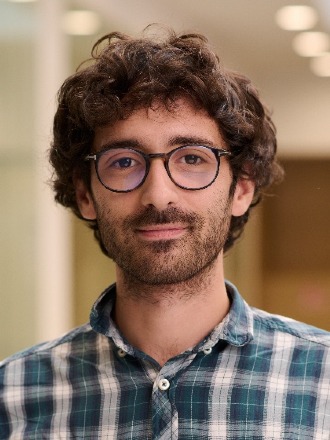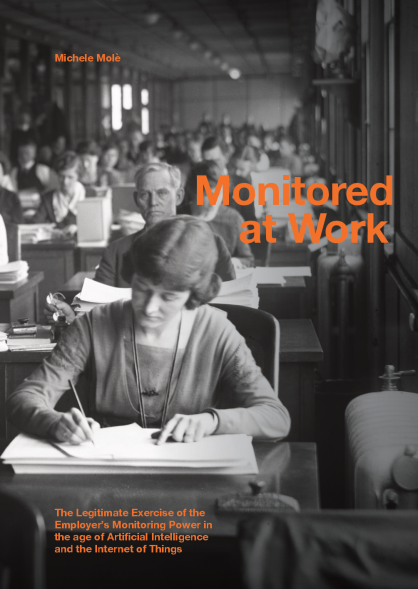The boss is watching you. Thanks to AI, even more and more. But is that allowed?

A camera that sees if you keep your eyes on the road. A chatbot that gives you real-time feedback on how to better respond to customers. A tool that tracks how quickly you respond to emails. AI gives employers endless possibilities to encourage their employees to be more productive.
But is all this allowed?
Michele Molè (age) explores this question in his thesis 'Monitored at work', for which he will receive his PhD from the University of Groningen on Thursday 16 October 2025.
Employers have always kept an eye on their employees, haven't they? Think of the time clock in the factory or having your wages docked if you go to the toilet too often.
‘That's right. In my thesis, I also provide a historical overview starting with the industrial revolution in the eighteenth century. I show that this led to the emergence of labour rights to protect employees.
This has yielded many benefits: health and safety measures at work, for example, such as wearing a helmet on a construction site, a ban on working with hazardous substances, a good office chair or mandatory breaks.
But when it comes to what you are allowed to do to monitor your employees' productivity, the law is more vague.’
At the beginning of this year, a study by the CNV trade union revealed that more than one in five employees are currently monitored in the workplace. In his thesis, Molè also argues that AI and the Internet of Things (networks of sensors that exchange data) are giving employers more and more opportunities to monitor their employees.
What is possible?
‘I looked at online providers of these types of measuring instruments in the workplace, and the possibilities are endless. Sensors that monitor how often you get up from your desk, how long you stay away for a toilet break, cameras that measure when you are distracted, tools that measure how often and how long you meet and how quickly you respond to emails. An AI chatbot that tells you during a conversation that your tone of voice could be a little friendlier. And I could go on and on.’
And is an employer allowed to do all that?
‘That's exactly what my research is about. And then you see that this development poses a threat to fundamental rights of employees, such as the right to privacy and data protection, freedom of expression and freedom of assembly and association.’
This development poses a threat to fundamental rights of employees
Are those rights adequately protected by law?
‘I show that there is still a lot of room for improvement. I looked at two European laws, the General Data Protection Regulation (in Dutch, the AVG) and the brand-new European AI Act, a law that will be introduced in 2024. And you see that neither of them adequately addresses what these new technologies mean in the workplace.
I therefore advocate for a new law that both specifies what data employers are allowed to use about employees and specifies whether and how you are allowed to use the new tools that are coming onto the market.’
Until that law exists, do you have any advice for employees?
‘Employees have the right to ask their boss what data they keep. But not everyone will be quick to approach their employer for fear of the consequences for their job.’
And what would you like to say to employers?
‘Be careful with all these new technologies and familiarise yourself with the risks. All these tools can cause employees a lot of stress and take away their enjoyment of work. And it is by no means always clear whether what you measure actually says anything about productivity. It's definitely not about how often you have meetings or how often you go to the toilet.’
Your thesis is finished, but it sounds like there is much more to be said on this subject. Would you like to continue with this?
‘I would very much like to, not only from a legal perspective, but also from other disciplines such as philosophy and sociology. But first I need to find a position somewhere. That's not so easy with all the cutbacks in science in the Netherlands.’

More news
-
08 December 2025
Colourful Characters: Bert Röling
